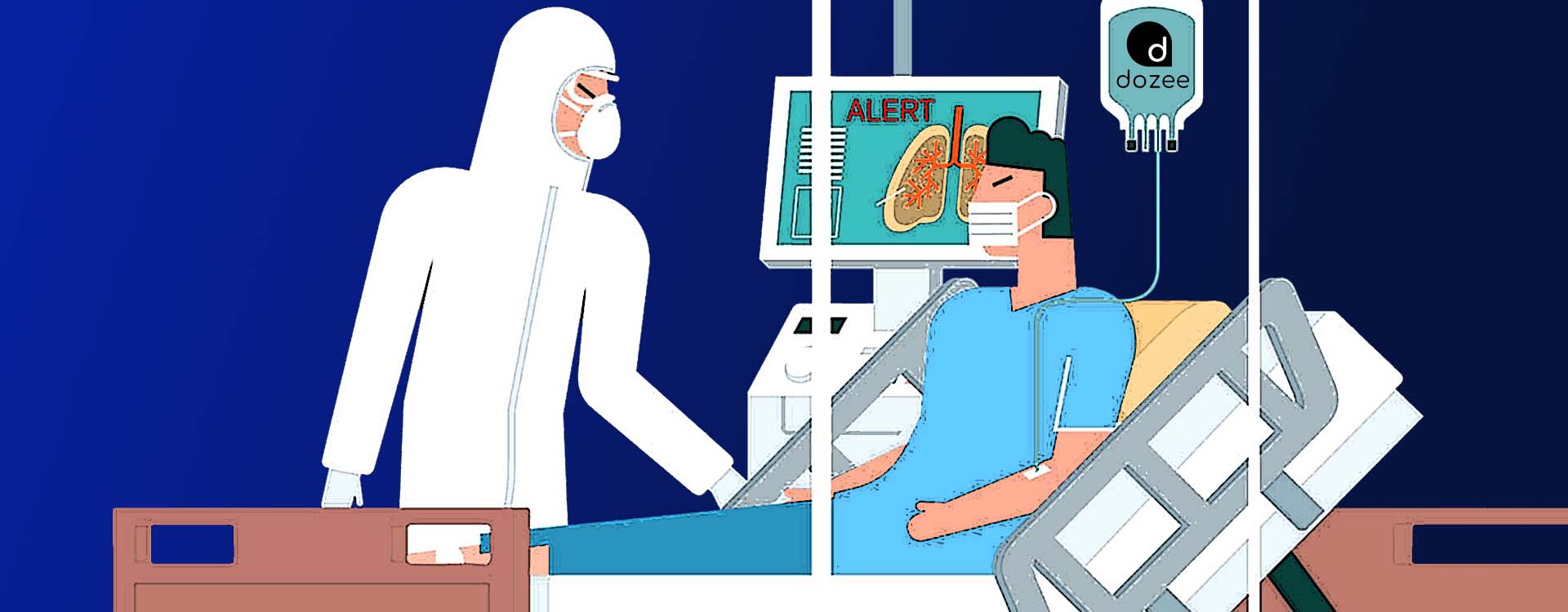In the ongoing battle against Covid-19, India has proved that it is ill-equipped to come out victorious without external help. Hospitals have been facing routine shortage of necessary equipment. In such a condition, healthcare startup Dozee has been providing a solution to the shortage of ICU beds in hospitals. Let us have a look at how Dozee has been helping with the covid crisis.
What is Dozee Pro?
A Bengaluru based startup, Dozee is helping in converting any normal hospital bed into a step-down ICU in under two minutes and enabling contactless remote patient monitoring (RPM). The remote patient monitoring is achieved through Dozee Pro – Dozee’s contactless vitals monitor that comes equipped with sensor, communication pod and cloud-based patient monitoring tool to capture real-time body vitals, and provide round the clock monitoring.
Further, Dozee has also set up a patient monitoring cell and with the AI-powered triaging system set up within hospitals ensuring on-ground support and remote monitoring of patients outside of the ICU can happen round the clock. The parameters monitored by Dozee include the patient’s heart rate, respiration rate, oxygen saturation, blood pressure and cardiac performance matrix among others.
Impact of Dozee in resolving ICU Bed Shortage
In an event held in March, Dozee CEO & Co-founder Mudit Dandwate announced that Dozee is looking to partner with over 500 hospitals and monitor over 2 lakh patients in the next 12 months. Since its launch, Dozee has partnered with 156 hospitals and set up 3155 beds all over the country.
‘‘
Dozee Pro comes equipped with a sensor, communication pod and cloud-based patient monitoring tool to capture real-time body vitals, and provide round the clock monitoring.
Will a healthtech solution revive India?
In the current situation where healthcare workers are at risk and are few in number, contactless health monitoring will enable healthcare providers to provide patients with an enhanced level of care even beyond the pandemic. According to a study licensed by medRxiv, India has an estimated 19 lakh hospital beds and 95,ooo ICU beds. These numbers are too small to combat the rapidly developing covid situation where over four lakh cases are reported in just a day.
The only viable solution to the current situation is through healthtech solutions. The future of medicine is digital health monitoring that is accessible to a patient at home administered by a registered health care provider. Moreover, remote patient monitoring also saves money.
How healthcare startups can support?
As per the latest data, if the healthcare industry could make use of remote patient monitoring technology along with electronic health records (EHR), around $700 billion could be saved in the next 15 to 20 years. Additionally, it has been found to be the most quantifiable return on investment (ROI) for a hospital.
For startups that engage in healthcare, producing healthcare solutions that employ remote patient monitoring technology and are cost-effective is one of the only ways to extend support to the ongoing crisis facing the country.




